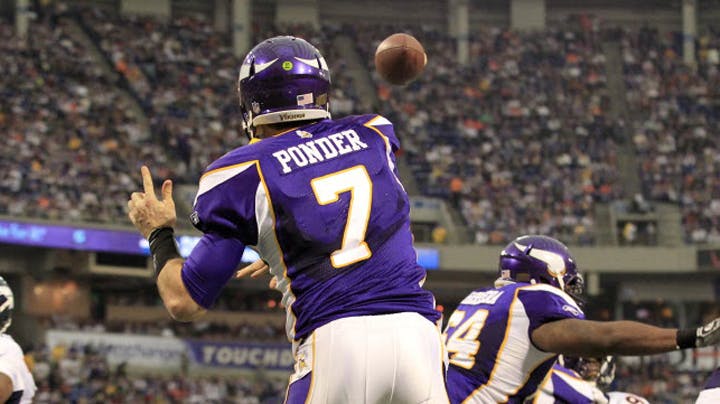The pendulum swung rapidly with Matthew Stafford during his rookie season. Back and forth, then back again.
Often, Stafford's head-scratching blunders were followed closely by flashes of brilliance. Which of course were followed by additional maddening mistakes.
Jim Schwartz remembers it vividly. As the new Lions coach in 2009, Schwartz enlisted Stafford as a foreman of the rebuilding project and then made sure to tightly secure his safety harness.
In Detroit's first preseason game that year, Stafford threw an interception that was returned for a touchdown by Atlanta's Tony Gilbert. On the next possession, the Lions quarterback led a nine-play, 80-yard drive that ended with a 25-yard touchdown toss.
The pick? Foolish, Schwartz said. Stafford's ability to quickly regroup without losing confidence? Now that was an even bigger deal, a sign Stafford had the mental wiring to emerge as a big-time playmaker.
"It wasn't because of anything we said to him on the sideline," Schwartz said Wednesday. "It wasn't any message of, 'Hey keep on going.' That's just in him.' "
Is this story starting to sound familiar?
Over the past eight weeks there has been much talk across the Twin Cities of Christian Ponder's potential, and of his costly youthful blunders and then of his ability to bounce back.
Two years ago, similar things were being said about the Lions rookie quarterback.
In 2009, Stafford started 10 games for a 2-14 Detroit squad.
Ponder? He could easily wind up starting 10 games this season for a 2-14 Vikings squad.
Ponder's numbers in his first six starts: .563 completion percentage, 1,423 yards, nine touchdowns, eight interceptions, one victory. In Stafford's first six NFL starts, he posted a .537 completion percentage, 1,265 yards, five touchdowns, 12 interceptions and one victory.
Fast-forward now. Heading into Sunday's game with the Vikings, Stafford ranks fifth in the NFL in passing yards (3,527) and fourth in touchdown passes (27). He is the triggerman for a team that averages 27.8 points per game, even without much stability at running back.
Not all that long ago, he was an eager, turnover-prone rookie on a losing team. Stafford threw 20 picks in 10 games his first season.
"I felt like I was trying to win every game by myself," Stafford said. "Right or wrong, that's just how my attitude was. I understand now that you can't do that."
So what triggered Stafford's awakening?
"Failing," he said. "I think if you fail enough times at something you're bound to learn from it."
That has to be good news for Ponder. On Wednesday, the Vikings rookie stood in the Winter Park field house still lamenting his two interceptions against Denver, the first returned by linebacker Mario Haggan for a touchdown and the latter which set up the Broncos' winning field goal.
Ponder called the mistakes "dumb" and refused to use inexperience as a justification.
"I don't want to make those mistakes," he said, "and I get mad at myself when I do. I don't like making excuses that, 'Hey I'm a rookie. I'm going to make those.' I want to make zero."
Added coach Leslie Frazier: "It just shows his competitive fire at how much he wants to succeed, the fact that a loss hurts him to that point. It's not a bad thing."
Stafford's breakthrough required two key ingredients: patience and support. The young quarterback first had to temper his urge to make big things happen on every play. But the Lions also had to make a concerted effort to bolster his supporting cast.
"We were awful on defense," Schwartz said. "And that puts too much pressure on a quarterback, particularly a young one. ... We needed to support our quarterback with playmakers, with a better defense. We're still a work in progress there. But we've given him more weapons. We've improved our defense. And that allows a quarterback to make good decisions."
That formula has Detroit pawing a wild-card opportunity and feeling confident with its long-term potential under Stafford.
Said Frazier, "We're looking forward to the same thing with our young quarterback."

